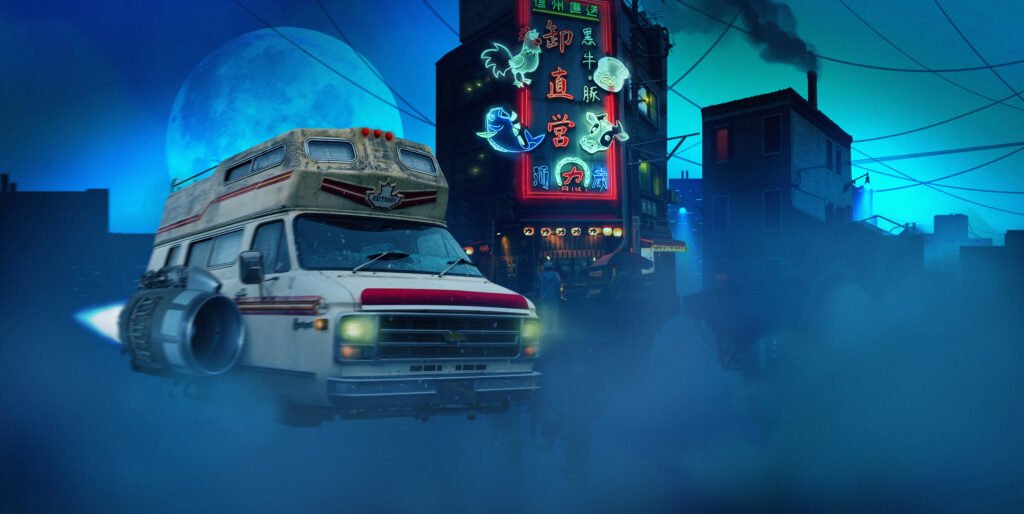Since its explosive entry into the gaming world, the Grand Theft Auto series has been more than just a collection of video games; it has been a persistent, controversial, and utterly captivating force in popular culture. To simply label it a “crime simulator” is to miss the vast, intricate, and often brilliant tapestry it weaves. From its humble beginnings as a top-down arcade-style game to its current status as a benchmark for open-world storytelling, GTA holds a unique mirror up to the absurdities, vices, and dark humor of modern society, inviting players not just to play, but to inhabit a world of boundless possibility and pointed satire.
The Blueprint of Freedom: The Open-World Revolution
The single most defining feature of any Grand Theft Auto title is its commitment to the open-world format. Rockstar Games did not simply create a backdrop for missions; they engineered living, breathing simulacrums of American urban life. These are spaces that feel alive with their own rhythms and rules, independent of the player’s actions. The genius of GTA’s design lies in its emergent gameplay—the unscripted moments that arise from player freedom. A simple drive across town can escalate into a frantic, multi-star police chase, a dramatic car crash, or a serendipitous discovery of a hidden secret. This sandbox philosophy transforms the game from a linear narrative into a personal story generator, where the most memorable moments are often the ones you create yourself, outside the confines of the main plot. The world is not just a setting; it is the main character, a playground of chaos and consequence that rewards curiosity and punishes recklessness in equal measure.
A Savage and Satirical Heart: Critiquing the American Dream
Beneath the surface-level carnage and criminal enterprise, the Grand Theft Auto series possesses a sharp, satirical wit that is often its most intelligent feature. The games are not glorifying the criminal lifestyle so much as they are using it as a lens to critique the very foundations of modern capitalism, consumerism, and the corrupted American Dream. Through its brilliantly written in-game radio stations, television commercials, and billboards, GTA constructs a world where everything is for sale and everyone is a hypocrite. Parodies of social media, celebrity culture, political figures, and fast-food empires are littered throughout the environment, creating a consistent tone of cynical amusement. The protagonists themselves are often reluctant participants in this system, striving for a piece of the pie only to find it poisoned. This layered social commentary elevates the experience, providing a thought-provoking subtext that challenges players to look beyond the violence and see the broken society that facilitates it.
Beyond the Controversy: The Evolution of Narrative and Character
While the series has always been a lightning rod for controversy due to its adult themes, its evolution as a storytelling medium is undeniable. The leap from the silent, archetypal protagonists of the early games to the deeply flawed, complex, and fully voiced characters of the modern era represents a significant artistic maturation. Games like Grand Theft Auto IV with Niko Bellic’s tragic pursuit of the “American Dream,” and especially Grand Theft Auto V with its groundbreaking trio of Michael, Franklin, and Trevor, showcase a narrative ambition rivaling that of prestige television. These characters are not heroes; they are criminals, liars, and narcissists, yet they are written with such depth and humanity that players become invested in their dysfunctional lives and heists. The storytelling has become less about the “crime” and more about the “auto”—the internal drivers, regrets, and fractured relationships of the people committing them.
A Cultural Juggernaut: Impact and Influence
The release of a new Grand Theft Auto title is no longer a mere gaming event; it is a global cultural phenomenon. The record-shattering success of Grand Theft Auto V demonstrated its unprecedented reach, captivating a audience far beyond traditional gamers. Its influence permeates other media, from films and music to broader discussions about art and violence. Furthermore, the enduring longevity of GTA Online has transformed it from a single-player narrative into a persistent social space, a digital backyard where millions log in not to follow a story, but to create their own with friends. This shift has cemented GTA’s status as a platform, a virtual hangout, and a testament to the power of its core design. It set a new standard for scale, detail, and ambition in game development, forcing the entire industry to reconsider what is possible within an interactive open world.
Conclusion
Grand Theft Auto is a paradox. It is a work of profound technical achievement and sharp social satire that is often reduced to its most violent and controversial elements. It is a world of breathtaking beauty and meticulous detail built to facilitate chaos and destruction. It holds a mirror up to our world, reflecting its greed, its absurdity, and its dark humor, and gives us the agency to either critique it or succumb to it. To “wheon” Grand Theft Auto is to engage with one of the most significant, ambitious, and complex pieces of interactive entertainment ever created—a series that continues to challenge, entertain, and define the boundaries of its own medium.
FAQ
Q: Are the Grand Theft Auto games just about killing people and causing chaos?
A: While that is certainly an option available to the player, it’s a reductive view of the experience. The core of the game is its deep narrative, character development, and the freedom to explore a vast, satirical open world. The main story missions involve heists, character-driven drama, and strategic planning, with the chaotic “sandbox” element being an optional, player-driven activity.
Q: Why is the series so controversial?
A: GTA courts controversy by design. It unflinchingly explores adult themes like crime, violence, drugs, and sexuality within a highly interactive and accessible format. Its satire often targets powerful institutions and cultural norms, making it a target for critics who argue it glorifies immoral behavior, though the developers contend it is a critique of that very behavior.
Q: Which game is the best one to start with?
A: For modern players, Grand Theft Auto V is the most accessible and polished entry point. It features a massive, diverse world, three compelling protagonists, and a story that perfectly encapsulates the series’ tone. For those interested in a more serious, narrative-driven experience, Grand Theft Auto IV is also a superb choice.
Q: What makes Grand Theft Auto different from other open-world games?
A: GTA’s signature blend is its unique tone. It combines a realistic, densely populated world with a sharp, cynical, and often hilarious satire of modern culture. The attention to ambient detail—from talk radio conversations to the behavior of pedestrians—creates a level of immersion and a consistent, darkly comedic atmosphere that many other games struggle to match.
Q: Is Grand Theft Auto Online required to play?
A: No. Grand Theft Auto V includes a full, complete, and critically acclaimed single-player story that is entirely separate from the online component. GTA Online is a separate, massive multiplayer extension that uses the same map but focuses on cooperative and competitive gameplay with other players.


